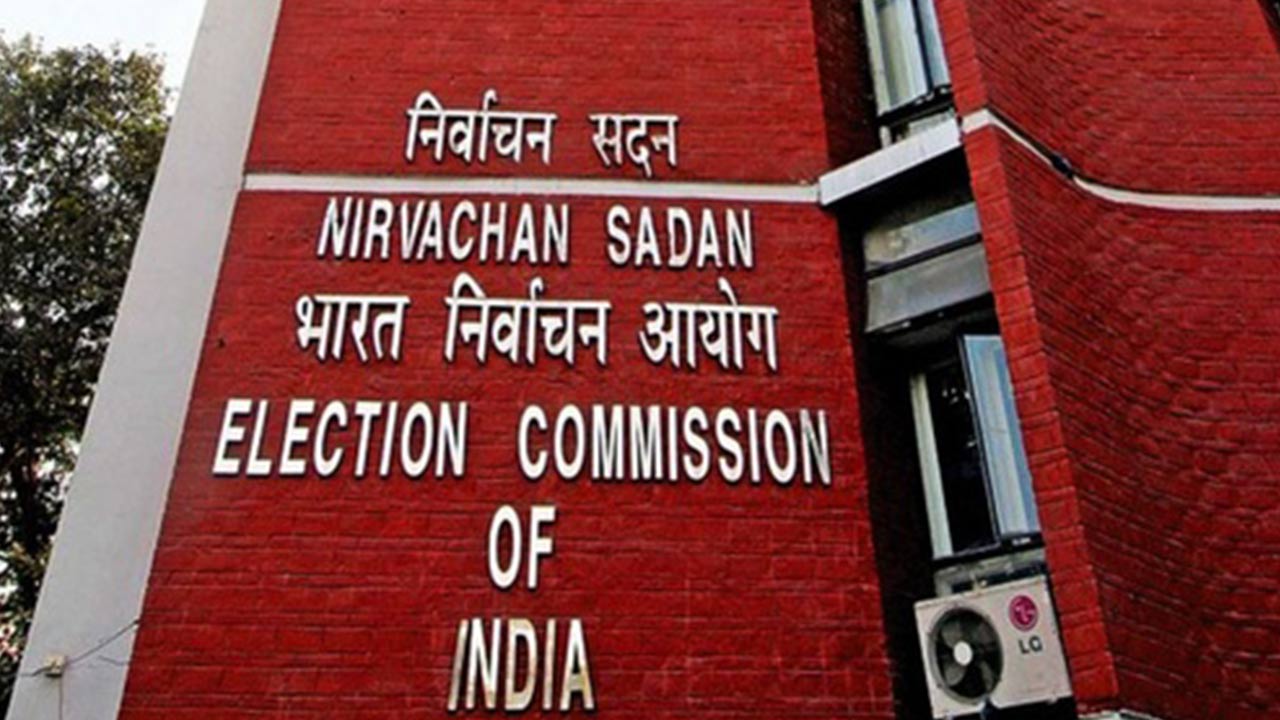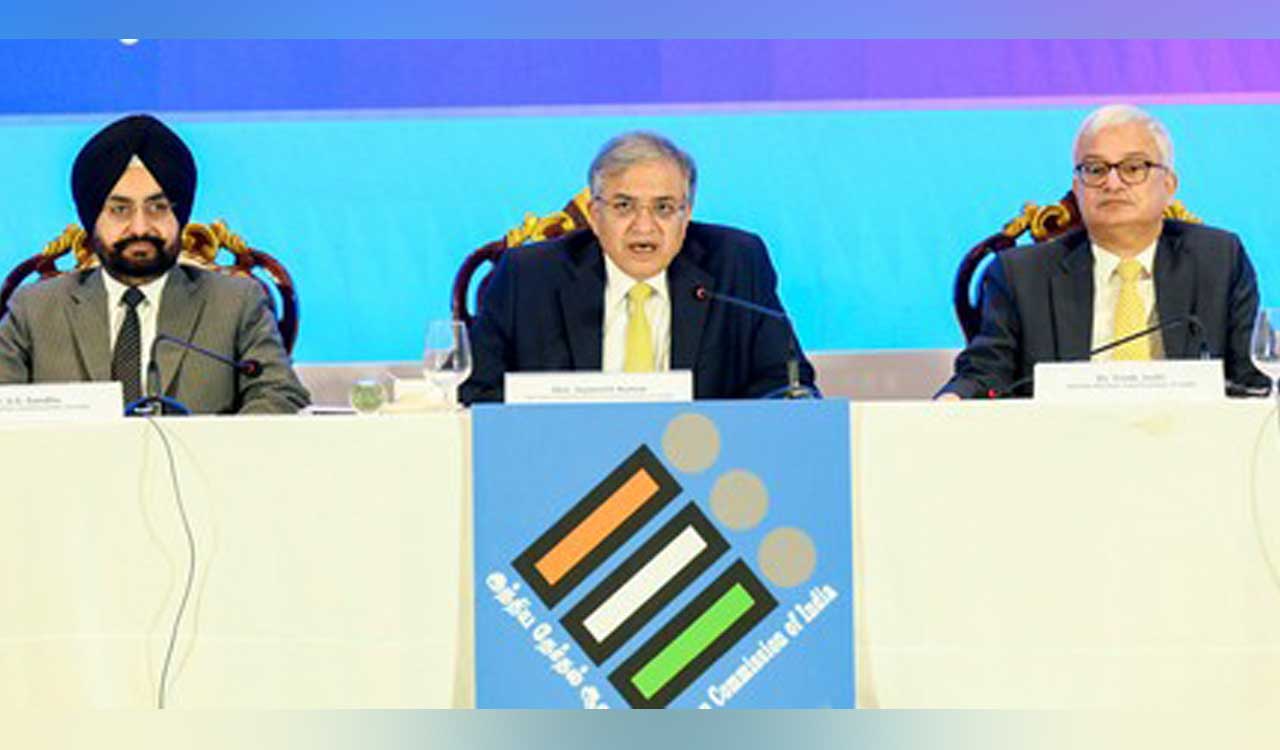Politicians and promise of the moon
A law on election manifestos and freebies, as stressed by SC, is yet to see the light of the day

Of all the poll-bound States, West Bengal is grabbing the most attention. To cross the hurdle of anti-incumbency, besides charges of corruption, violence and stiff competition from the Bharatiya Janata Party (BJP), the Trinamool Congress (TMC), in its election manifesto – released on March 17 – is promising a slew of freebies (a thing that is given free of charge) to the voters.
The same is the case with political parties seeking votes in Tamil Nadu – a State famous for freebies. It is reported that the candidates have promised free iPhones, Rs 1 crore and even a trip to the moon. But what are the legal and societal effects of promising freebies by political parties during elections?
For and Against
Supporters of freebies argue that promises in election manifestos are essential because voters get prior first-hand information of what a party will offer them when it forms government to enable them to make an informed choice while voting; and secondly, freebies support the underprivileged to meet their basic daily needs. The opponents argue that freebies lure or induce voters to elect the party which promises more freebies; cause economic burden on the exchequer, and make the citizens parasites of the government of the day.
There is no direct provision in election laws, which prohibits parties from promising freebies in their election manifestos. In the absence of a direct provision in electoral laws to curb the promise of freebies, and seeing the rampant assurance of freebies by leading parties in the run-up to Tamil Nadu elections that were held in 2006 and 2011, one social-spirited citizen [S Subramaniam Balaji v State of TN, (2013) 9 SCC 659] approached the Judiciary to declare “promise of freebies” as “corrupt practice” under Section 123 of the Representation of the People Act, 1951 (RP Act, 1951). This Section makes certain acts of the individual candidate or his agent or any other person, like bribery and undue influence, as “corrupt practices”.
SC’s Stand
The Supreme Court refuted his submissions by holding that:
• It will be misleading to construe all promises in election manifesto as corrupt practices
• Section 123 does not apply to political parties
• Court cannot lay down new norms for characterising any practice as corrupt practice
• Distribution of state largesse is for implementing Directive Principles of State Policy
Although the promise of freebies was not construed as “corrupt practice” under Section 123 of the RP Act by the Supreme Court, nonetheless, it observed that “distribution of freebies of any kind, undoubtedly, influences all people. It (promise of freebies) shakes the root of free and fair elections to a large degree”. Observing this, the Supreme Court directed the Election Commission of India (ECI) to frame guidelines for election manifesto released by political parties and also stressed the need for separate legislation in this regard.
Following the SC’s direction, the ECI directed political parties not to make impracticable promises, but the ECI’s directions fell on deaf ears. The legislation, as urged by the Supreme Court, is yet to see the light of the day.

Electoral Reforms
As there is a rampant increase in ‘promising the moon’ by the political parties in their election manifestos, only to deceive the gullible voters after forming government, it is high time the Judiciary – by following its own-carved principle that “judicial approach should be dynamic rather than static, pragmatic rather than pedantic and elastic rather than rigid” – considered issuing directions like:
• ECI shall constitute an “Election Manifesto Monitoring Committee”, consisting of independent members, wherein all the political parties, before releasing their manifesto, should get the certification from the committee that the promises made by them in the election manifestos are feasible
• Committee shall assess if any of the freebie promised by the political party is likely to influence the voters, and if such freebie influences the voters, then the committee shall have powers to direct the political party to expunge such freebie from its election manifesto. If the political party does not follow the direction of the committee, then the committee shall have powers to recommend to the ECI to debar the party from contesting that ensuing election
• To deter parties from making false promises, the promises made by the political parties in their election manifestos shall be subjected to Indian Contract Act, 1872, where breach of promise results in suing for damages or specific performance. The Election Manifesto Monitoring Committee shall be vested with the powers to look into these cases
The above specified electoral reforms contain an illustrative list, but, somewhere a start has to be made to ensure that a voter casts his nation’s future-deciding vote in a free and fair manner. It is said that long term goals cannot be overtaken by short term ones.
If the citizens cast their vote under the undue influence of the promise of freebies, they have to suffer till they get another chance to vote, probably after five years. By that time, the businessmen-like politicians may not leave anything to the people by reaping a rich harvest from the mandate given to them. Let us also hope that the voters too will exhibit their responsibility by shunning the freebie promises and making the right decision.
(Dr GB Reddy is Professor, University College of Law, Osmania University. Baglekar Akash Kumar is a student at the University College of Law)
Now you can get handpicked stories from Telangana Today on Telegram everyday. Click the link to subscribe.
Click to follow Telangana Today Facebook page and Twitter .
Related News
-
Bengal SIR: CEO’s office recommends punishment for some EROs, AEROs
-
Bengal SIR: Final voters’ list to be published today, classified under 3 categories
-
2,500 CAPF companies needed if Bengal polls are held in single phase: ECI
-
War of words in social media over TMC MP Mohua Moitra’s post on electoral roll observer Murugan
-
Telangana: Two drown in Godavari river after Holi celebrations in Manugur
12 mins ago -
Naga Chaitanya’s Vrushakarma: Sathya’s Balaji look unveiled on birthday
34 mins ago -
Two foreign nationals arrested with MDMA worth Rs 25 lakh in Hyderabad
47 mins ago -
Sri Lanka rescues 32 sailors from sinking Iranian naval ship
46 mins ago -
Study warns of extinction risk for lion-tailed macaques
2 hours ago -
IIT Hyderabad to host national symposium on accessible, inclusive digital library
2 hours ago -
Blood Tests to Consider When Facing Sudden Hair Fall
2 hours ago -
Doctors call staff suspension scapegoating in Jadcherla case
2 hours ago




